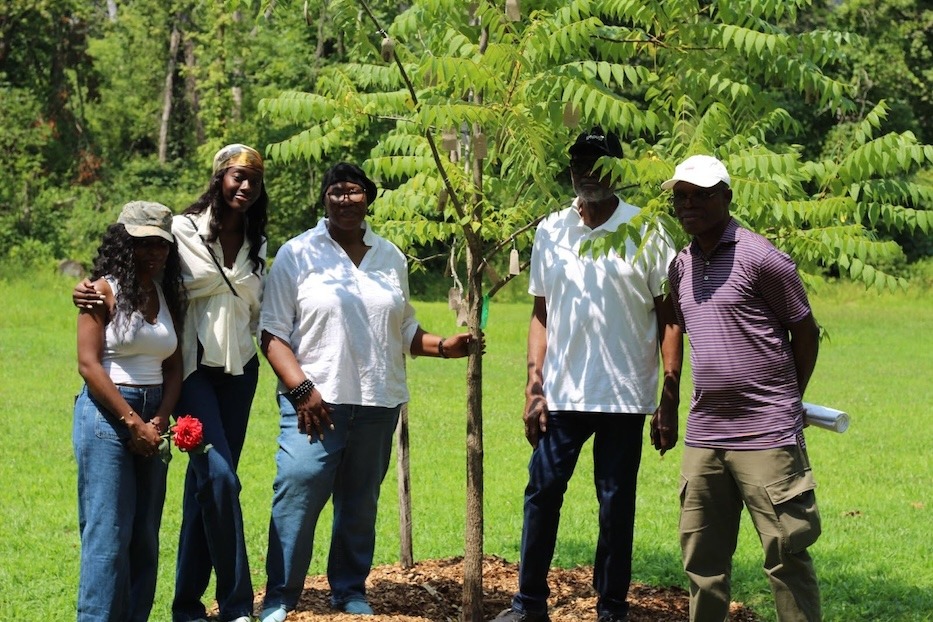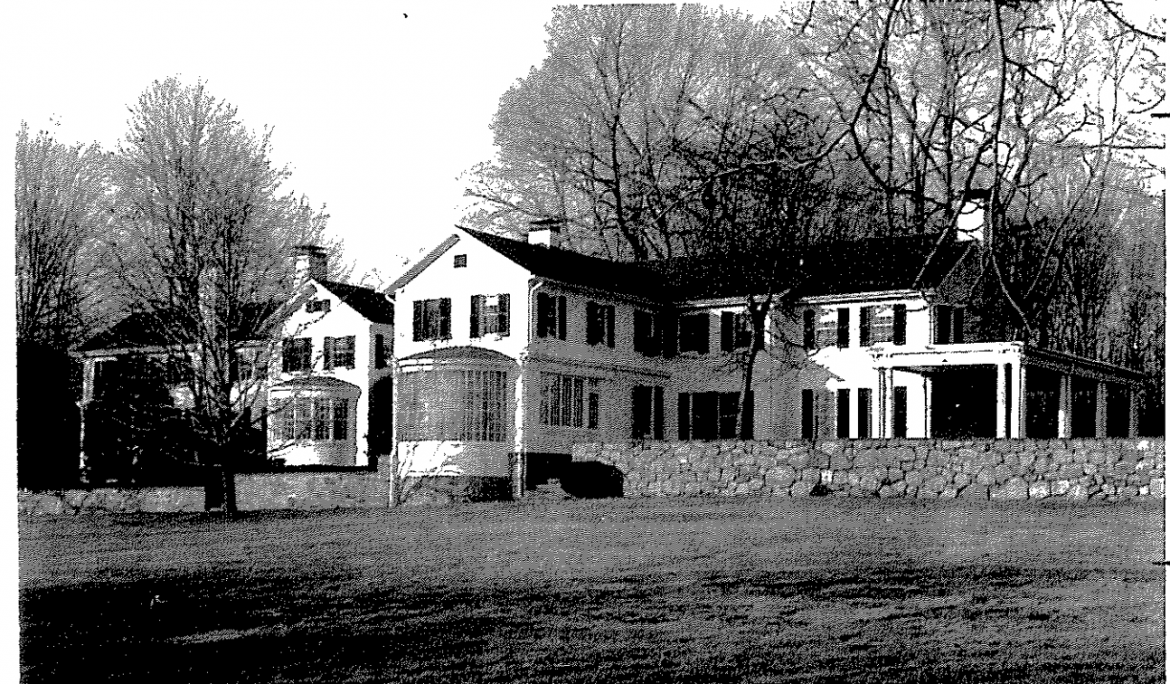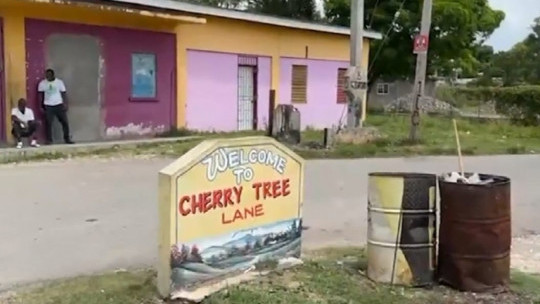
BLanchard Tondo, Annie Gumba, Christy Masamba, Sarah Ngongi, Simon Ngongi and Luc Fabius Clyde. Abiba Biao Photos.
Harry Coyle still remembers the first time he met Semi Semi-Dikoko. A park ranger from New Haven, Coyle was on his usual route through Edgewood Park when Semi-Dikoko appeared, smiling, taking a leisurely stroll with his nieces and nephews. It wasn’t long before he became a fixture at the park, helping with park cleanup, planning events and dreaming up new areas for fruit trees and art.
Almost two years after his deathCoyle still can’t imagine the park – or New Haven – without him.
That memory was one of many on a recent Saturday when dozens of Semi-Dikoko’s friends, family, confidants and Westville colleagues gathered to celebrate his life in a place he made his second home. Huddled among the park’s lush greenery and sun-drenched trees, those in attendance commemorated Semi-Dikoko’s impact on New Haven and took time to dedicate a black walnut tree in his honor.
The event was organized by Friends of Edgewood Parkof which Semi-Dikoko was a committed member.
The tree, still a sapling, now has several handwritten signs commemorating his life and testifying to how much he loved a good celebration: the event coincided with his 71st birthday.
“He was just always involved in Westville and the community. Wherever he went, every program I was involved in, he was always there. He was always willing to help,” Coyle said. “You didn’t have to ask him. He just showed up and was there.”

Semi-Dikoko was born and raised in Congo and moved to New Haven in 1991 after living in Belgium, Germany and New York. that certain something and cosmopolitan flair in the Elm City. To those who knew and loved him – a number that seemed to grow all the time – he was endlessly generous and had the ability to build a community that extended far beyond his close-knit family.
“He was not just a brother to me,” said his younger sister Annie Gumba, for whom Semi-Dikoko had laid the foundation for her journey to the USA. Gumba is now a financial assistant at the Yale School of Medicine; Semi-Dikoko spent his last months in their house before going to Yale-New Haven Hospital. “He was a father. He was a friend.”
Semi-Dikoko also supported his brother-in-law Simon Ngongi, who earned his MBA from the University of New Haven.
“He wished the best for people and the community,” Simon said in French. “He wanted the community to move and develop. He loved what was good for people and loved helping and supporting people. That was always his top priority.”
As they gathered around the tree, Gumba thanked community members for their support as Semi-Dikoko dealt with his cancer diagnosis. She stressed the importance of small, meaningful acts of kindness and community building – like her brother knew. When Semi-Dikoko died, he was beloved even by his doctors and nurses.

“Each of us must love each other while we are still alive,” she said. “We must impact our community while we are still alive. We cannot wait for our friend, our loved one, our family members to go… We are here because Semi was good to everyone. He impacted each and every one of us.”
With tears in her eyes, she turned towards the park, pointed to the tree and the surrounding green space, and enjoyed the scenery that Semi-Dikoko enjoyed every day.
“Thank you to the community for hosting this great day here in honor of my brother,” she said. “Now I will have time that I never had here to enjoy this beautiful tree that will bloom here in honor of Semi.”
As participants gathered on Saturday, many of them told stories about Semi-Dikoko, who once gathered an entire town to 48 fruit trees in Edgewood ParkOne after the other, they remembered their great love for nature, their responsibility for Friends of Edgewood ParkInterested in assisting park rangers and helping organize events in the park.
His siblings, cousins, nieces and nephews also reflected his love of family, which often overlapped with his love of spacious, clean green spaces in the city that became his adopted home. In addition to helping his younger sisters Gumba and Lucienne Nkebani settle in New Haven, he also supported his nieces, Simone and Sarah Ngongi. He was a constant cheerleader to Sarah as her career as a fashion designer, artist and model took off.
On Saturday, Sarah recalled visiting Manhattan with him as a tour guide. In the years since, her uncle’s curious spirit and wanderlust have led her to place a higher priority on community and interpersonal relationships.
“He always talked about the importance of getting involved and giving back, and I really believe that contributed to who I am as a woman today. It contributed to my sister’s life, and he always encouraged us to travel,” she said.

Coyle and Goomba.
Family friend and recent UConn graduate Benie N’sumbu remembered Semi-Dikoko as a leader in her life. Six years ago, N’sumbu met Semi-Dikoko after she participated in Artspace New Haven’s Summer Apprenticeship Program. He later helped her apply for summer programs at Boston College and provided her with a letter of support that provided her with financial aid.
“In the end they gave me a little more money so I could actually go,” she recalls.
After gathering at the ranger station, participants walked a paved path to the tree dedication site in the middle of the park. There, a still-small black walnut tree stood surrounded by mulch and wood chips, a reminder that even in his most casual moments, Semi-Dikoko was not afraid to get his hands dirty.
Black walnut trees can grow 50 to 75 feet tall and are native to the Northeast. They help maintain local habitats, provide shade for wildlife and park visitors and bear fruit, said Chris Ozyck, deputy director of the Urban Resource Initiative. For these reasons, Ozyck felt the tree was a fitting tribute that symbolized Semi-Dikoko’s ongoing compassion for others.
“This (Edgewood Park) is a place that embodies Semi,” he said, adding that the tree is reminiscent of Semi-Dikoko’s long, slender figure. “This is his place in the park.”
One by one, participants hung their signs on the tree, tying personal messages and thoughts to the branches. On each sign, a small picture of Semi-Dikoko smiled back.
“He was one of my mentors here in New Haven and I appreciate the knowledge and life experience he shared with me,” Coyle said. “He is a good man and I miss him.”

Muffie Pendergast.
FEOP member and event organizer Muffy Pendergast remembered Semi-Dikoko’s welcoming personality and his “booming voice” that could be heard for miles.
“That’s how he was, he was happy to see you and welcomed you no matter what, you know?” she said. “And there was no one he didn’t treat special.”
Pendergast, a Westville artist, recalled meeting Semi-Dikoko often and described him as a “social architect.”
“He was very interested in checking on everyone because he saw that there was a need and getting people on the right path,” she said. “I just wanted to get everyone on the right path.”
She added that they are also working on installing a bench next to or under the tree in memory of Semi-Dikoko.





